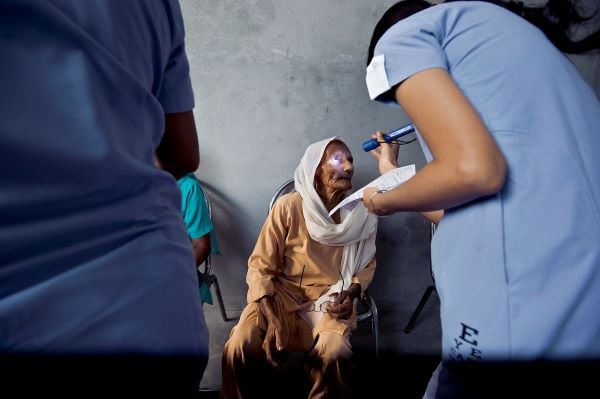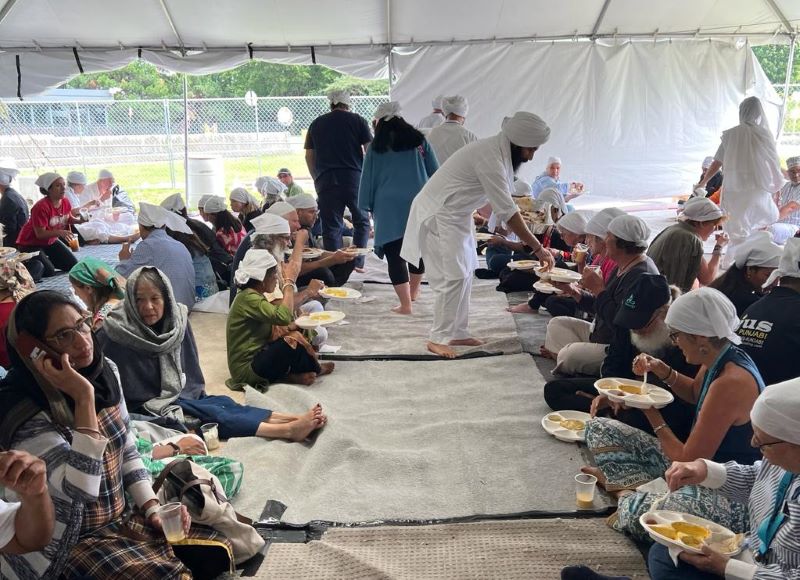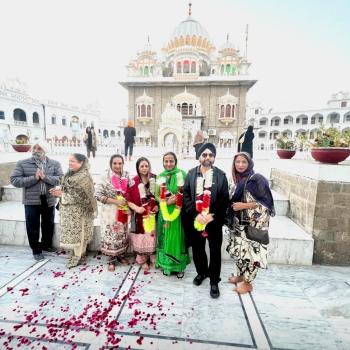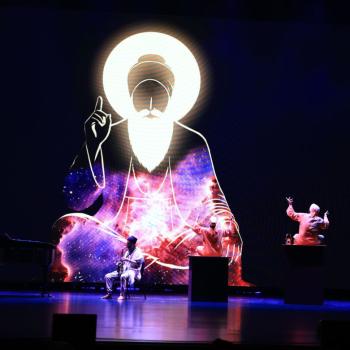
“What is the purpose of life?” I once asked an Indian spiritual guru. I expected him to say: Enlightenment, moksha! But no. I was surprised when he replied, “The purpose of life is to serve others.”
I am reminded of that simple but profound line on the eve of Giving Tuesday, which follows Thanksgiving. Yes, we express gratitude for gifts we have received. The best of them is the gift of life – just being alive and kicking. And then we give back – to the less fortunate than ourselves to the extent we can. That sentiment has been institutionalized since 2012 as Giving Tuesday and has been part of Holidays, the giving season.
Giving in faith traditions
The founders of religious and spiritual movements, as well as great personages, have exalted service. Jesus Christ said, as told by Paul in the Acts of the Apostles, that giving is better than receiving. In his first letter to Timothy, Paul tells rich Christians to be “generous and willing to share”.
Giving without motive or generosity is known as dāna in the Eastern traditions. Brihadaranyaka Upanishad, a Vedantic text of Hinduism, in verse 5.2.3, exhorts all to cultivate three cardinal virtues — self-restraint, charity (dana), and compassion for all life. In Buddhism, generosity is one of the Ten Perfections and is the antidote to greed.
Tithing – giving a tenth of your earnings to a religious establishment – is still practiced in many Christian – particularly Methodists – and Jewish denominations as well as in Islam.
Coming closer to our times, Mahatma Gandhi’s favorite devotional song was Vaishnav jan to… “Only those people are Vaishnava (devout Hindu) who feel the pain of others, who help those in misery…” The song written by Narsinh Mehta formed a part of daily prayer sessions in Gandhi’s iconic Sabarmati Ashram in Gujarat and became a favorite of Indian freedom fighters.
If you have seen the 1982 epic movie Gandhi by Richard Attenborough, you may remember this searing scene. Once a suited-booted barrister, Gandhi, played by Ben Kingsley, is crisscrossing India by rail to understand the impoverished country and its people. At one stop, he is washing up by a riverbank when he notices a woman trying to cover herself with a half-sari she wore. Gandhi lets his garment flow downstream for her to grab to save her dignity. Since that day, Gandhi only wore a loincloth and never had possessions beyond necessary. What a sacrifice to serve people!
‘Why give?’ I ask philanthropists
As a journalist, I interview philanthropists and humanitarians also. The one question I pose to them is, “Why give?” I am always struck by their ennobling answers.
“Service is the rent we pay for living on this earth, for being. It is the very purpose of life, and not something you do in your spare time.” Dr R.V. Ramani told me, quoting Shirley Chisholm, the first black woman member of the US Congress. Dr Ramani quit his flourishing medical practice in Coimbatore, in southern India, to start the Sankara Eye Foundation, which, over five decades, has performed 2.5 million free eye surgeries, giving the gift of sight to the poor in remote parts of the country. Dr Ramani is also fond of quoting Emerson: “The purpose of life is not to be happy. It is to be useful, to be honorable, to be compassionate, to have it make some difference that you have lived and lived well.”

I had the opportunity to profile Sankara Eye Foundation (SEF) for a newspaper and spoke to Murali Krishnamurthy, who started SEF’s fundraising arm in the US in 1998. They now have 26
eyecare hospitals in India and the vision of performing one million free eye surgeries annually by the year 2030.
In all humility, Murali, based in the Bay Area, said, “Anything I do is God’s work, I’m not the doer. I’m fortunate to be able to do it.” Then he quoted Swami Vivekananda, who brought Hinduism to the US, “Don’t stand on a pedestal and throw money at beggars. Instead, bow down and give with humility because you are the beneficiary. ”
Mukund Padmanabhan, a PhD in electrical engineering from UCLA, who founded the Guru Krupa Foundation in 2008, also has been inspired by religious leaders who set an example by giving their all for the common good. “If they can do that, then we should be able to follow in their footsteps to some small extent,” he told me as I spoke to him recently for a journalistic assignment.
Empathy is another factor, Padmanabhan said. “If you see somebody suffering and you are an empathetic person, then you too feel it and you want to do something about it; that’s human nature.” How much you give will depend on your capacity to give. He feels fortunate that after he started working for a hedge fund in New York, he has the means to give to worthy projects in the US and India.
In my last column for Patheos about the Sikhism founder Guru Nanak Dev, I mentioned ‘Let’s Share a Meal’ organization. Well, to mark Thanksgiving last week, they prepared and delivered over 10,000 vegetarian meals across 80 locations in five eastern states: New Jersey, New York, Pennsylvania, Massachusetts, and Connecticut. The Thanksgiving meal drive is part of their broader mission, which has seen the not-for-profit serve over 1 million meals across the US in the past 12 years.

Sikhs have a long-standing tradition of serving free meals called langar. It was awe-inspiring for me to see a Sikh organization from the UK serve 7,000 meals a day for five days at the Chicago convening of the Parliament of the World’s Religions in 2023.
Giving gets you good karma and positive hormones
Give, serve others, religions say, to earn good karma to become your asset in the afterlife and the next life.
Modern psychology clarifies that you don’t have to wait for the next life to enjoy the rewards of giving. The act of giving, whether it be time, money, or help of any kind, triggers a rewarding response in the brain, releasing feel-good hormones like dopamine, oxytocin, and serotonin, leading to positive emotions like happiness, increased self-esteem, and a sense of connection with others. That proves Swami Vivekananda’s point that you are the beneficiary in giving.
Now an innovation has made giving more convenient: Giving Machines. Installed in 107 cities in the US and 13 countries across five continents, these philanthropic vendors allow you to buy food or drinks for a family around the world.
Over the Holidays, some of the gifts you can provide someone in need include:
- A prepaid cell phone for $25
- A metro bus card for $30
- After-school tutoring for 5 children for $50
- Baby formula for 10 expecting mothers for $100
The Giving Machines are a project The Church of Jesus Christ of Latter-day Saints in association with UNICEF, The Salvation Army, CARE, and others.
Happy Giving to feel good and earn good karma!
You may want to support ALotusInTheMud.com, the not-for-profit wellness and spritiuality web magazine I started with interfaith harmony as one of its goals.
















